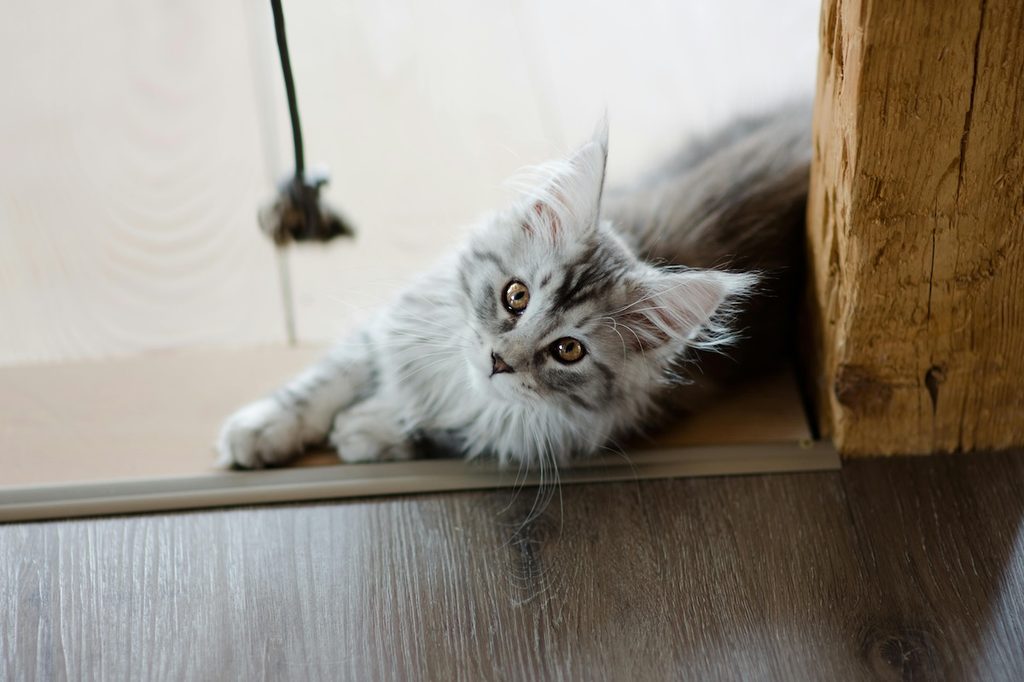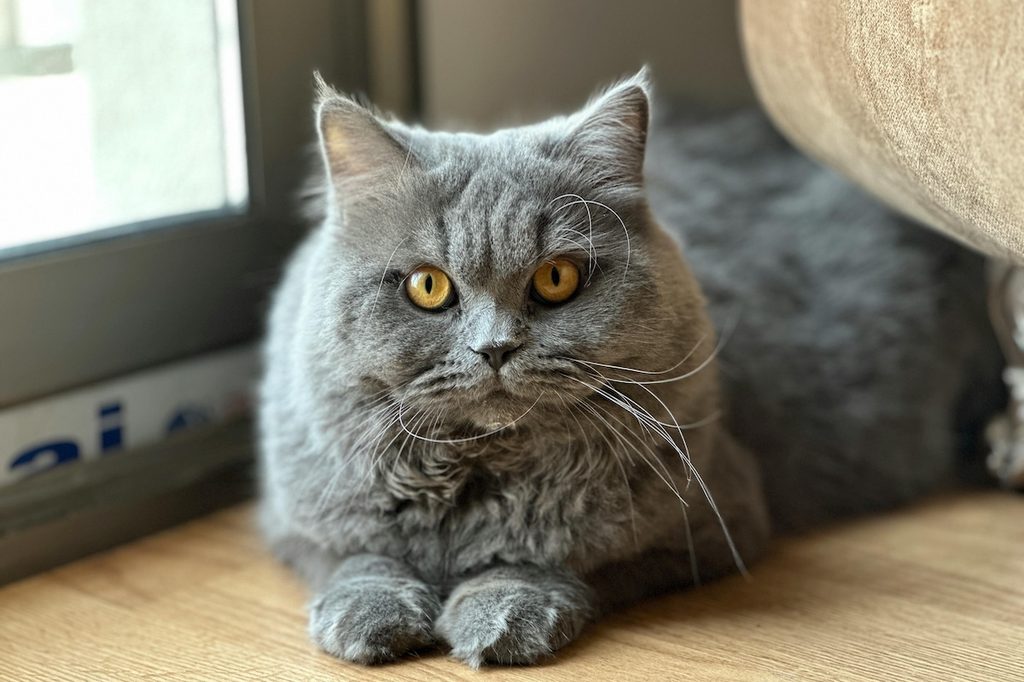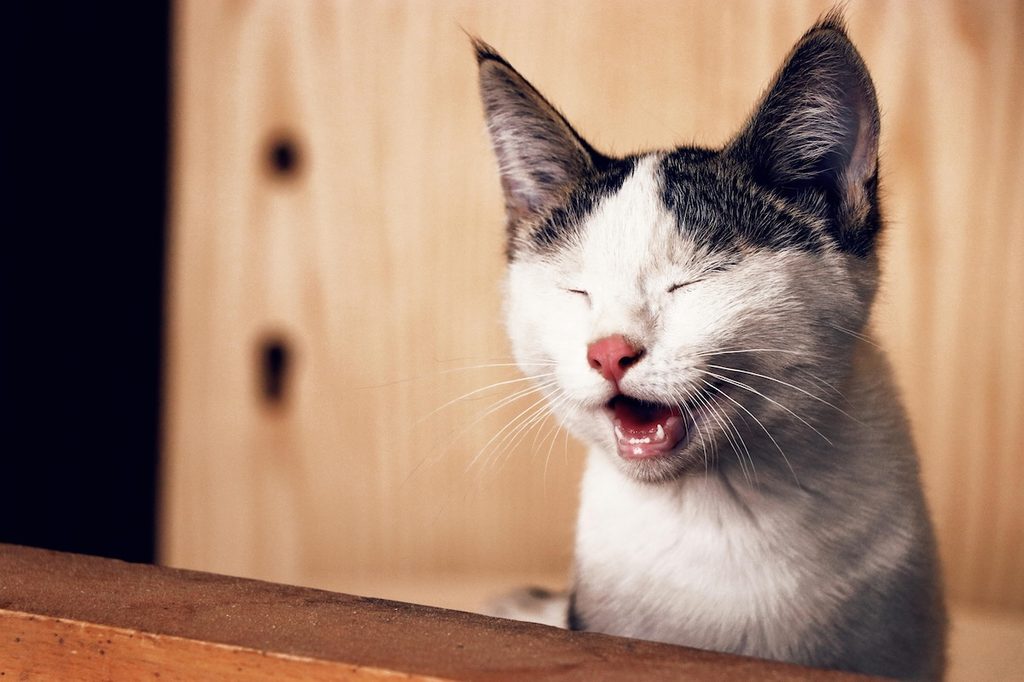
Cats are quirky — sometimes puzzling — creatures. Part of the fun of kitty parenthood is laughing off these funny, curious traits and perhaps looking into what each might mean. Is your cat staring at you because they’re plotting against you? Why does your cat want to sleep on your chest? Does your kitty wish you would get back to the office already after several years of this work-from-home thing?
Often, these questions — and our search for answers — are all in good fun. Cats are cats, and that’s why we love them. Yet, if your cat eats plastic, you might wonder, “Why does my cat eat plastic?” You’ll want to get a formal answer to this question from a vet.
Cats, like people, can experience something called “pica,” or craving (and consuming) nonfood items. People can experience pica and crave ice, metal, or plastic. Cats can, too. The triggers vary. However, plastic can be dangerous to a cat — and reasons for pica can also be life-threatening. Here’s what to know.

Why does my cat eat plastic?
You got your cat the perfect bowl and picked a quality food brand. Yet, their favorite food is plastic. If your cat is eating plastic, they likely have pica, a troubling behavior that causes animals (including people) to eat things that aren’t food. What causes pica? The answer varies, but a few common reasons for pica in cats that might be causing your feline friend to chow down on plastic include:
- Genetics. Like many health issues, cats can inherit pica. Some breeds, including Siamese or Burmese (or mixed breeds with Siamese and Burmese in their bloodline), are more prone to pica. These kitties have pica engrained in them, and the issue may be complicated to treat (but you can still protect your cat).
- Physical health. Cats can act like everything is fine but really be experiencing an underlying health condition. Cats may eat plastic if they have diabetes, anemia, inflammatory bowel disease, or hyperthyroidism. Your pet’s vet can run tests to rule out these conditions.
- Mental health. Yes, cats can experience mental health issues. Like physical health, these issues can prompt them to eat plastic. Cats with obsessive-compulsive disorder, high stress levels (such as from a new baby or a recent big move), and even just plain boredom might resort to consuming plastic.
- Nutrient deficiencies. Your pet may have nutrient deficiencies due to an underlying condition, such as anemia or lack of food. Perhaps your pet isn’t a fan of their current food. Switching up their diet may be needed (talk to your vet).

Signs your cat ate plastic and what to do
Eating plastic isn’t something to brush off. Cats should consume their food (and sometimes, treats, including human food that is perfectly safe). Plastic isn’t food. Sometimes, a cat will throw up or poop out plastic (TMI?). Other times, plastic can be dangerous. For example, plastic can get stuck in your pet’s digestive system and cause blockages, sometimes requiring surgical removal. Prompt care can help your pet experience the best outcomes. Signs your cat consumed plastic include:
- Lethargy
- Vomiting
- Diarrhea
- Lack of bowel movements
- Painful bowel movements
- Eating less or not at all
- Drooling
- Weight loss
- Signs of stomach pain, such as getting angry when you touch their tummy when they usually enjoy that
These symptoms can also be red flags of other conditions, so you should speak to the vet (especially if you’ve never seen your cat eat plastic).

Preventing your cat from eating plastic
Whether you’re trying to curb a cat’s plastic-eating habits or want to avoid this issue in the first place, a few tips can help.
- Redirect. When your cat is headed toward plastic, conceivably to bite into it, direct their attention to something else. Make it a high reward, like a favored treat or toy, to get their attention and interest.
- Provide enrichment. Creating an enriching environment can prevent stress and boredom. Plenty of toys and opportunities for your cat to play (solo or with you) are helpful. Perches let kitties see out the window and provide entertainment.
- Restrict plastic access. This one is crucial for tough-to-break plastic-eating habits in cats, particularly in cases attributed to breed/genetics. Keep plastic away from your cat so they can’t eat it in the first place.
- Scratch opportunities. Scratching can be a stress-relieving activity for cats.
- Medications. Sometimes, medications may help your pet with mental health. Other times, they may need medicines for physical conditions, like anemia, that can prompt pica. Treating these conditions properly can curb plastic consumption.



